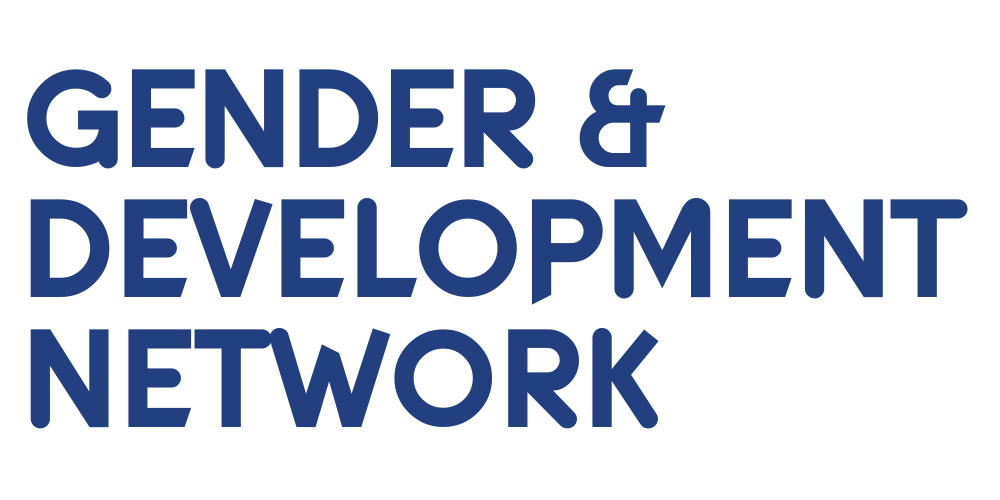Girls’ education
Education gives people the best chance to fulfil their potential in life and determine their own futures. This brings huge benefits not just for the individual, but for their children and entire communities and countries.
Despite significant progress on access to education in recent years, girls and young women are less likely to finish school than boys and young men. This is particularly true for women and girls living in poverty or with disabilities.
Millions of girls remain out of school due to multiple, intersecting barriers. These include social norms that prioritise boys’ education and make girls responsible for care work at home and, violence on the way to or in school.
Without education, girls are less likely to have control over their own income and more likely to face early and forced marriage and intimate partner violence.
GADN Resources
Explore GADN resources and learn more about girls’ education.
GADN Working Group
The Girls’ Education in International Development Working Group enables practitioners, academics and other partners to discuss the latest research, programmes and policies on girls’ education. The Group work together to conduct, synthesize and dissem
More on the issue
The challenge
Girls are 1.5 times more likely than boys to be completely excluded from primary education.
At the end of 2015, fewer than half of all countries had achieved gender parity in education at secondary level.
Only about 2 out of 130 countries have achieved gender parity at all levels of education.
Gender Barriers
Structural inequality within families and communities prevent and limit girls’ education; these include traditional attitudes about women’s role as caregivers, and expectations of early marriage and pregnancy.
For girls who do go to school, the quality of education is often poor because class sizes are large, schools lack basic equipment and teachers are under-qualified. Gender-biased or gender-blind policies, exacerbate the problem - such as a lack of clean water, gender-segregated latrines and sanitary facilities. It is made worse by a shortage or absence of female teachers as role models.
These barriers are so persistent that many girls who do enrol, fail to progress from primary to secondary school. At a secondary and higher education level, the gender gap widens, particularly in subjects traditionally seen as masculine such as science and maths. At university level, women who do enrol often don’t pursue higher-level degrees.
Education is essential for women to attain equality, and has a significant multiplier effect. Educated girls and women tend to be healthier, earn more income and are more likely to access healthcare services.
Useful links
A New Agenda for Education in Fragile States. Winthrop, R. and Matsui, E. (2013)
A Girl's Right to Learn Without Fear - Plan (2013)
Action and Interactions : Gender Equality in Teaching and Education Management, Cameroon- VSO (2012)
Banks in the DRC: the community that saves together stays together (Blog). The Guardian (2014)
CARE Education Sector Strategy 2020: addressing inequities, empowering learners. CARE (2014)
Delivering learning for life - Plan (2013)
Education Counts: Towards the Millennium Development Goals. Education for All-UNESCO (2011)
Engendering Change through Gender Clubs in Ghana. VSO. (2015)
Evidence on girls' secondary education. HEART Helpdesk (2015)
Gender Equality in Teaching and Education Management in Rwanda - VSO (2012)
Girls’ Learning: Investigating the classroom practices that promote girls’ learning. Postles, C., Moore, K., Reilly, A., and Naylor, R. (2013)
The Hidden Crisis: Armed conflict and education. Education for All-UNESCO (2011)
Improving village education: Improving enrolment and retention of girls in primary schools in South Sudan. Africa Education Trust. (2011)
Interagency Network on Education in Emergencies (INEE) Pocket Guide to Gender. INEE c/o UNHCR. (2010)
Learning for Life: Because I am a Girl Report: The State of the World’s Girls. Plan UK (2012).
New Lessons: The Power of Educating Adolescent Girls: A Girls Count Report on Adolescent Girls. Lloyd, C. (2009)
Stop Violence Against Girls in School Report: A cross country analysis from Ghana, Kenya and Mozambique. Parkes, J and Heslop, J. (2011)
Teaching and Learning: Achieving Education for All. Education for All-UNESCO (2014)
Transforming Education for Girls in Nigeria. Wetheridge L. and Mamedu, A. (2013).
Transforming Education for Girls in Nigeria and Tanzania. Unterhalter, E. and Hesler, J. (2011)
Transforming Education for Girls in Tanzania. Wetheridge, L., Kapaya , O., Unterhalter, E., & Heslop, J (2012)
Relevant Websites
IOE (via UCL IRIS)
Other GADN Issues
📷 GADN, along with other African feminists attends FEMNET’s African Feminist Macroeconomics Academy (AFMA) in Zimbabwe (June 2022) © Simamkele Dlakavu

